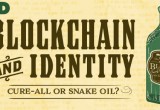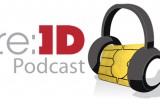Catalan digital ID program using Blockchain wins government approval
26 September, 2019
category: Digital ID, Government
The newly announced Catalan digital ID initiative will use blockchain technology to empower citizen service in the northeastern corner of Spain. The regional government of Catalan reportedly has “launched a new project to create decentralized and self-sovereign digital identity based on distributed ledger technology.”
That report, from TokenPost.com, comes amid other digital ID and blockchain efforts throughout the world, including recent projects in Africa that also have a humanitarian and charitable bent.
Decentralized control key to Catalan digital ID
But this Catalan digital ID project offers something new, at least according to a recent statement from government authorities in that part of Spain. “Catalonia will become the first country to have a decentralized digital identity, empowering citizens to be the exclusive owners, managers and safekeepers of their identity in any personal digital activity, whether carried out in the public or private sphere,” according to that statement.
The project, called IdentiCAT, conforms to the European Union regulations enacted in 2014 — called IDAS — that apply to digital ID and trust and security issues that involved digital transactions.
The IdentiCAT ID conforms to the European Union regulations enacted in 2014 — called IDAS — and thus will be accepted in any EU member state.
“The main purpose of this regulation is to guarantee mutual recognition and acceptance of electronic identities between EU countries and provide a legal framework for their use in other member states,” according to the government statement. “Thus, IdentiCAT may be used to access online services and process electronic transactions in any EU member state.”
The idea behind blockchain digital ID, of course, is to provide a secure way for citizens to have more control over their personal data, and therefore their identities. Or as the authorities in Catalan put it: “By means of specific software (on their mobile or defined computer device), citizens will be able to create and manage their own identities, with full legal effectiveness and privacy.”
As well, the use of blockchain technology enables “citizens (to) demonstrate any required feature of their identity keeping the rest of their data contained in their ID private,” the statement adds. It was not immediately clear about the deployment schedule for these blockchain-enabled digital IDs, nor the cost.
Blockchain-enabled digital IDs are part of similar projects in such countries as Taiwan and Sierra Leone.




